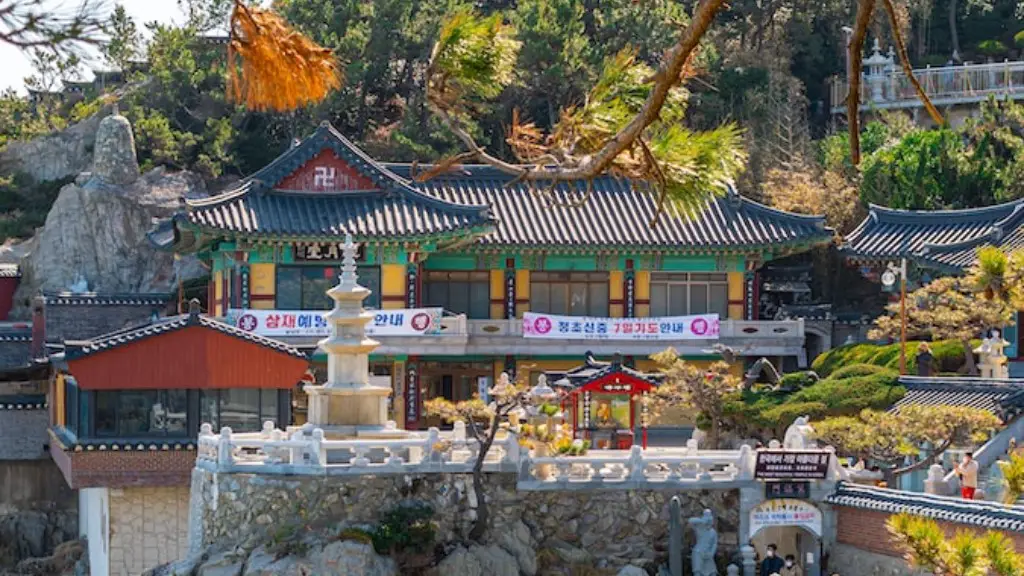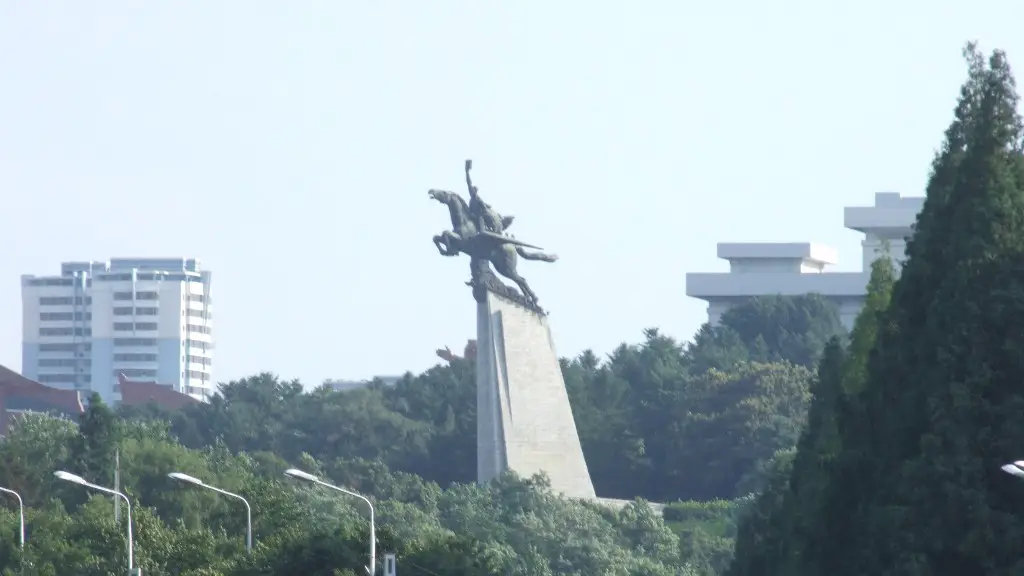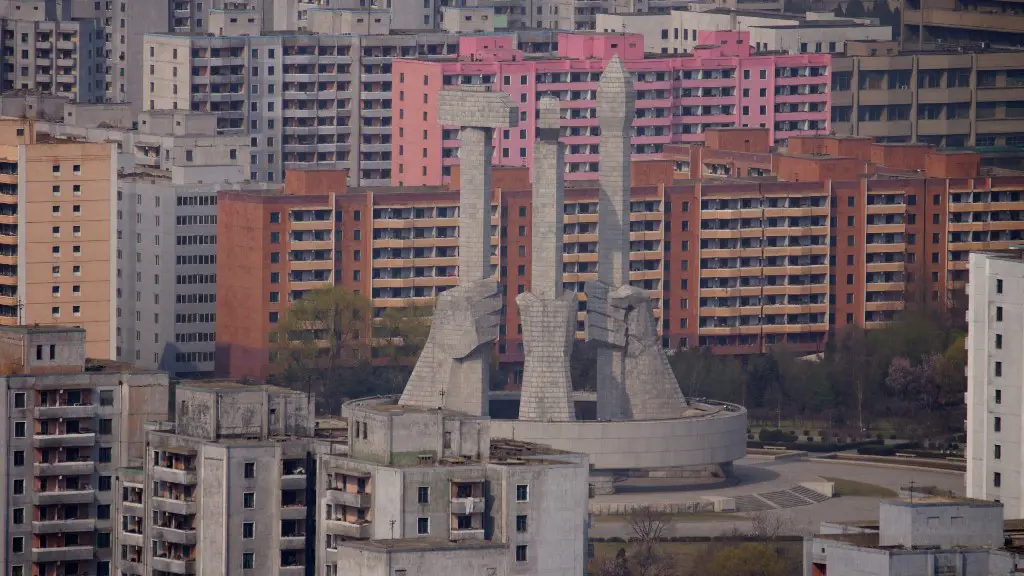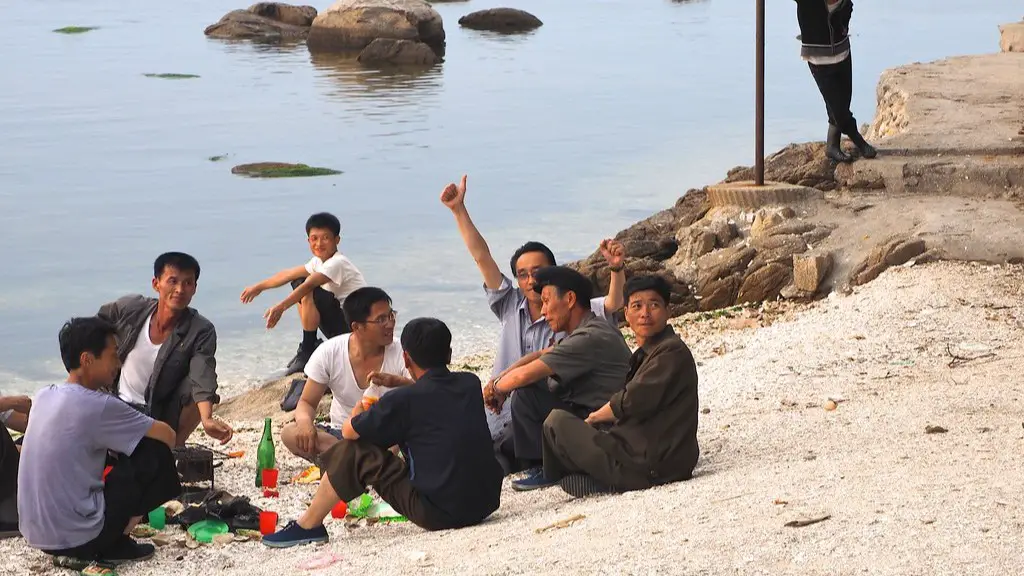Overview
The issue of why North Korea is not attacked by other countries has been a long-debated topic. North Korea has been a provocateur on the international stage for some time now, but it has not been subjected to a military or any other form of attack. Why is this the case?
Part of the answer might lie in the complexity of geopolitics and a desire by those who are involved in the region to avoid escalating a conflict. North Korea is a nuclear-armed state and there is a fear of the consequences that a direct attack could bring. A number of non-military strategies are being employed as an alternative approach to dealing with the North Korean government.
This article will look at why there is no open attack against North Korea by other countries, what strategies are being employed instead, and discuss the international implications. It will also delve into the ethical considerations, the possibilities of diplomatic solutions, and the potential risks and rewards of any form of attack on the North Korean state.
Geopolitical Complexity
The main reason why North Korea is not subject to an attack is because of the complex nature of geopolitics. North Korea has powerful allies, including China and Russia, which have an interest in keeping the regional status quo. North Korea is part of the so-called ‘Axis of Evil’–a term first used by President Bush in 2002 to refer to states that are considered to be a threat to international peace. The ‘Axis of Evil’ also includes Iraq and Iran.
What makes the geopolitical consequences of attacking North Korea even more complex is its proximity to South Korea and Japan. Any attack on North Korea could threaten the stability of the region, which would be a major source of concern for the countries involved. As well as this, the US has a major military presence in the region and there is a fear that an attack on North Korea could provoke a direct response from them.
It is also worth noting that North Korea has a long history of bellicose rhetoric and provocations. The state has previously threatened to attack its neighbours if they take any action against them. This further complicates the geopolitical situation, as the countries involved are not only concerned with security, but also with how their actions will be perceived by North Korea and their allies.
Overall, the geopolitics of the region are complex and any attack on North Korea could have unintended consequences. This is the main reason why no country has chosen to take military action against the state.
Non-Military Alternatives
Rather than taking military action against North Korea, the international community has opted to take a different approach. A range of non-military strategies are being employed to try and manage the situation.
One such strategy is sanctions. The UN Security Council has imposed a range of sanctions on North Korea aimed at curtailing the country’s nuclear programs and other military activities. These sanctions have had some success, with the North Korean government recently announcing that it is willing to halt its nuclear weapons program if the international community lifts the sanctions.
The United States has also been engaging in what is known as ‘backchannel diplomacy’. This involves direct contacts between US officials and North Korean officials in a bid to reach a compromise that would be acceptable to both sides. The US has also been engaging in track-two diplomacy, which involves talks between non-state actors from both sides.
Overall, these non-military strategies have been successful in diffusing tensions and preventing a conflict in the region. However, there is still a risk that an attack could be launched, and these strategies are seen as a way to prevent this from happening.
Implications
The decision not to attack North Korea has implications both domestically and internationally. Domestically, it has raised questions about the efficacy of the US policy in the region, as while sanctions and other strategies have had some success, the North Korean government remains defiant and the country continues to be a threat.
Internationally, the decision not to attack North Korea has reinforced the importance of diplomacy and dialogue in resolving international conflicts. It has also highlighted the importance of multilateralism and the need for countries to work together to find solutions to difficult problems.
At the same time, the decision not to attack North Korea has been criticised by some as being too soft and not acting as a deterrent. This argument is countered by those who argue that the consequences of an attack could be too severe, both for the region and for the wider world.
Ethical Considerations
The decision not to attack North Korea has also raised ethical considerations. There is a strong argument to be made that attacking North Korea would violate the concept of ‘just war’ as it could lead to the death of innocent civilians and the destruction of non-military infrastructure. It could also lead to a humanitarian crisis, as any conflict in the region could have immense consequences for the people who live there.
Although there are no easy answers, it is important to recognise that attacking North Korea is not a simple decision. It is a complex situation with multiple ethical considerations that need to be weighed up before any action is taken.
It is also worth noting that the international community has a responsibility to protect those who are at risk from the actions of the North Korean government, such as refugees and those living in poverty. Taking action against North Korea is an important way of ensuring that those who are vulnerable and at risk are protected.
Diplomatic Solutions
The decision not to attack North Korea has allowed for diplomatic solutions to be explored. Although North Korea has been unresponsive to diplomatic overtures in the past, there has been some recent progress. The 2018 Singapore Summit between US President Donald Trump and North Korean leader Kim Jong-un was seen as a positive step towards de-escalating the tensions in the region.
The summit highlighted the importance of diplomatic dialogue in resolving international disputes. It also raised hopes of greater cooperation and a greater willingness from both sides to reach an agreement that is acceptable to all parties involved.
This is especially important given the complexity of the situation and the potential catastrophic consequences of a military conflict between the US and North Korea. A diplomatic solution, while not easy to achieve, is the most preferable outcome for all concerned.
Risks and Rewards
The decision not to attack North Korea has both risks and rewards. The main risk is the potential for a miscalculation that could escalate the conflict and lead to a protracted and bloody conflict. This is a risk that must be taken seriously, as a conflict between the US and North Korea would have devastating consequences for the region and the wider world.
At the same time, there are also potential rewards. Focusing on diplomatic solutions and de-escalation strategies could lead to the peaceful resolution of the tensions in the region. It could also lead to the stabilisation of the situation, which could in turn lead to greater security and prosperity in the region.
Overall, the decision not to attack North Korea is a difficult one and it is hard to predict the consequences of any action taken. It is, however, important to consider both the risks and rewards of any approach, as well as the ethical considerations that must be taken into account.
International Consequences
The decision not to attack North Korea has implications for the international community. It shows that countries are willing to work together to de-escalate conflicts, rather than resorting to military force. This reinforces the idea that diplomacy and dialogue are the best way to resolve disputes and tensions between states.
It is also a reminder that countries are willing to look for solutions that are in the interests of all parties involved. This is an important lesson for the international community, as it shows that it is possible to find solutions that are acceptable to all sides.
Finally, the decision not to attack North Korea reinforces the importance of multilateralism and of working together to achieve peace and stability in the region. The international community has a responsibility to protect the vulnerable and to promote a peaceful resolution to international conflicts.
Perspective of Experts
The decision not to attack North Korea has been met with mixed reactions from experts. Some have argued that it is the right decision, as an attack could have devastating consequences for the region and the wider world. Others have argued that the North Korean government needs to be held accountable and that an attack is the only way to do that.
The debate over the risks and rewards of attacking North Korea is likely to continue for some time. Ultimately, the decision not to attack North Korea is a complex one, and it is important to consider all the implications before taking any action.
Criticism of US Policy
The decision not to attack North Korea has been criticised by some as being a weak response to the North Korean government’s provocations. These critics argue that the US should take a tougher stance on North Korea, as the current approach is not deterring the regime from its hostile actions.
However, this argument overlooks the complexities of the situation and the potential consequences of any form of attack. It is also minimises the potential of de-escalation strategies and diplomatic solutions that are being pursued by the US and others.
Overall, there is no clear consensus on how to deal with North Korea. The decision not to attack North Korea is a difficult one, and it is important to consider all the implications before taking any action.
Conclusion
The decision not to attack North Korea is a complex one, and it is likely to be debated for some time. The international community has opted for a range of non-military strategies to try and manage the situation, and this has had some success in diffusing tensions. At the same time, critics of this approach argue that a tougher stance is needed to deter the North Korean government from taking further provocations.
Ultimately, the decision not to attack North Korea has implications for the international community and shows the importance of diplomacy and dialogue in resolving international conflicts. It is also a reminder of the potential consequences of any action taken, and the importance of considering both the risks and rewards of any approach.





